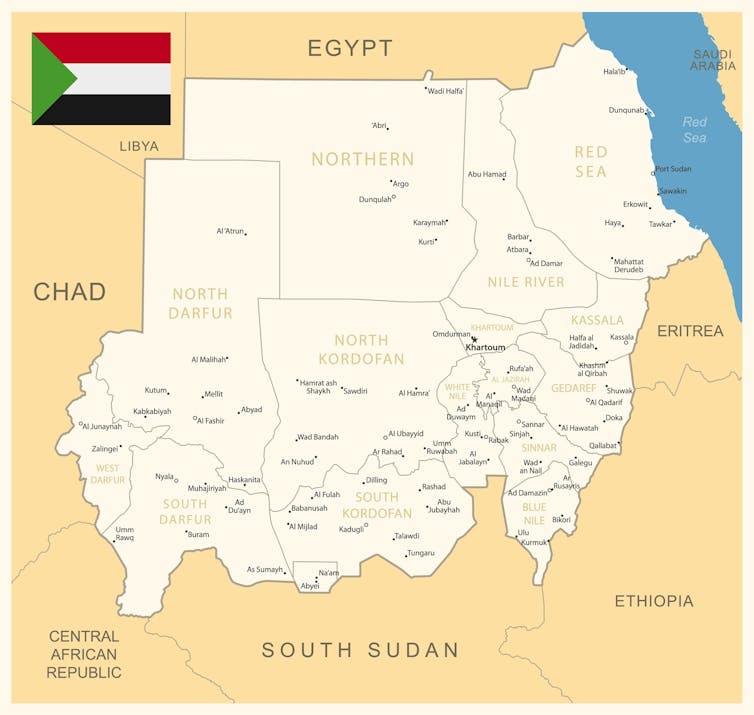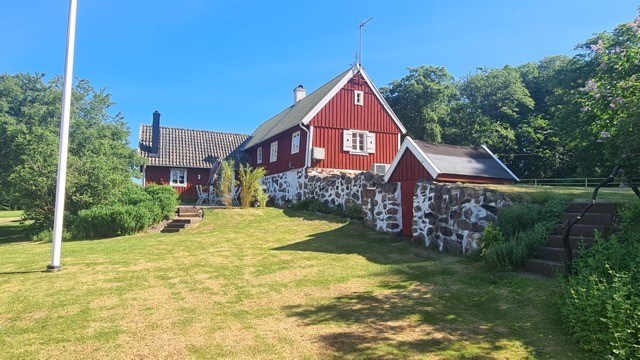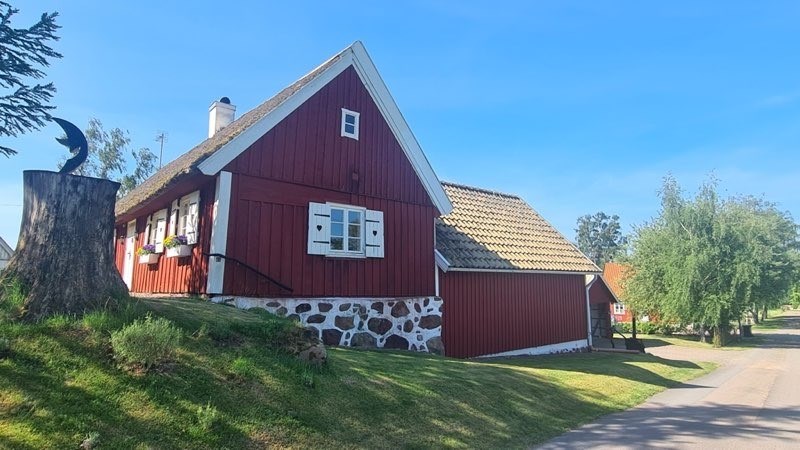Detta inlägg post publicerades ursprungligen på denna sida this site ;
Date:
Author: Naomi Ruth Pendle, Lecturer in International Development, University of Bath
Original article: https://theconversation.com/usaid-the-human-cost-of-donald-trumps-aid-freeze-for-a-war-torn-part-of-sudan-254215
The day of Donald Trump’s second inauguration, his incoming administration abruptly paused the work of USAID, while also claiming that it would preserve USAID’s “lifesaving and strategic aid programming”. These dramatic, overnight cuts were an unprecedented – and deadly – experiment in relation to aid spending which will have a catastrophic effect on the lives of those who depended on it.
The sudden suspension of USAID is set to make the famine in Sudan the deadliest for half a century. Since the announcement I’ve been working to see the impact of these cuts with a team of Sudanese researchers in South Kordofan State (Sudan), including from the South Kordofan-Blue Nile Coordination Unit, as part of my famine-focused project.
When war erupted in Khartoum in April 2023, the southern region of South Kordofan was relatively peaceful, so large numbers of people fled there for safety. But most fled with no food, so local people had to work out how to support the new arrivals. Many decided to host families, sharing what little food they had for themselves, believing that international aid would be made available.
Without this aid, these local humanitarians are now themselves also facing serious shortages. The timing and abrupt nature of the shuttering of USAID has made this particularly dangerous.
South Kordofan sits on the border with South Sudan. Like much of the country, it’s an agricultural region and in times of peace, people are able to grow crops and raise livestock. The region also has a long history of exporting livestock and commercially grown crops.
However, this food trade has been largely extractive as it followed colonial agricultural schemes run by British imperial agents and their elite indigenous associates that often left locals in poverty.

gt29/Shutterstock
After independence, the region suffered through decades of war between the Sudan government to the north and the Sudan People’s Liberation Army (SPLA) which fought a campaign that culminated in the foundation of South Sudan in 2011 (with the support of the US). South Kordofan and its SPLA supporters were trapped in the middle.
People in South Kordofan long for peace and a state that provides them with basic services, so they wouldn’t depend so heavily on humanitarian support. Since the 1980s, famine mortality has been dramatically reduced by international aid.
In fact, the US response to the famine of the mid-1980s under the then president, Ronald Reagan, whose administration provided more than US$1 billion (£766 million), saved hundreds of thousands of lives. This period became known in Sudan as “Reagan’s famine”.
‘Hemedti famine’
Now in South Kordofan they are calling the hardship created by the influx of starving people fleeing fighting further north the “Hemedti famine”, after Mohamed Hamdan “Hemedti” Dagalo, the leader of the Rapid Support Forces (RSF). The RSF is fighting the national army, the Sudan Armed Forces (SAF) run by rival warlord General Abdel Fattah al-Burhan.
Many of those who have fled from urban centres lack the skills to survive and are far from their family networks, making them particularly vulnerable. Sudanese people have a strong moral sense – and sometimes a legal obligation to help family members.
This clearly doesn’t necessarily apply to most of those fleeing the fighting. But there is also a strong tradition of helping all people and even strangers in need, which people in South Kordofan have had to navigate.
Many locals chose to provide lifesaving local humanitarian support. But that is of necessity and finite. There is now a desperate need for a massive increase in aid. In such emergencies, international aid plays a key role in topping up the food that people grow and gather for themselves, and has made the difference between life and death.
Why is the USAID freeze so deadly?
This is why the curtailing of USAID support is so catastrophic. Even if US support were to be fully restored, the pause has already had deadly consequences. The sudden stopping of many local NGO worker salaries, a key source of income in the region, is another disaster. Each salary supported dozens of family members.
The 2025 aid cuts are set to be devastating for more people. Things are already critical. It has been estimated that half a half a million people died from hunger and disease across Sudan in 2024 alone.
I’m now getting reports from South Kordofan of households not lighting a fire for up to four days at a time, which means the family is not eating. And, as ever, it is the children and the elderly who are particularly vulnerable.
The consequences of famine are lasting. People in South Kordofan are reporting an increase in criminality as people steal in order to survive, which leaves lasting mistrust and social division. Famine also leaves a legacy of shame because people are witnessing their loved ones suffer and die. When people die in times of famine the living often do not even have the energy or resources to provide a dignified burial.
The Trump administration could not have turned off USAID support at a worse time. Aid logistics in Sudan follow a seasonal cycle. In the wetter months from May to November, the roads to South Kordofan that aid organisations depend on for food distribution become impassable.
So aid for the hungriest months from April to August, when stores are running low but the harvest in September has not yet come, must be delivered in the driest months before the rains start. USAID was halted in January, at the heart of the dry season, so this opportunity has been missed.
Meanwhile north-south flights in Sudan have been prohibited by the Sudan government since the civil war flared in 2023. There has been a report that the government will also ban incoming aid flights from Kenya due to Nairobi’s alleged support for the RSF.
Last month, the founder of Sudanese thinktank Confluence Advisory, Kholood Khair, told journalists: “It’s difficult to overstate how devastating the USAID cut will be for Sudan, not just because Sudan is the world’s largest humanitarian crisis but also because the US was Sudan’s largest humanitarian donor.” We’re now seeing that devastation getting worse by the day.
![]()
Naomi Ruth Pendle receives funding from the British Academy and the European Research Council.

